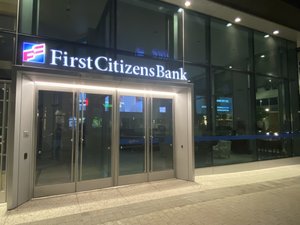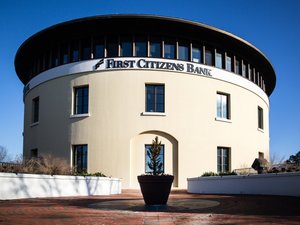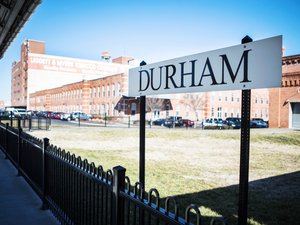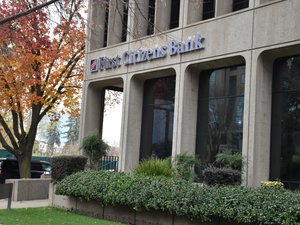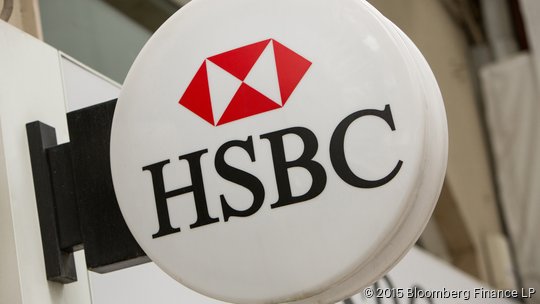
After acquiring and rebranding the remains of the former Silicon Valley Bank U.K., HSBC has launched what it calls HSBC Innovation Banking. The specialized banking proposition is led by David Sabow, who says the new unit will support the innovation economy, including technology and life sciences entrepreneurs in places such as Raleigh and Durham.
But there are challenges, including a lawsuit launched by Raleigh’s own First Citizens Bank (Nasdaq: FCNCA) accusing HSBC (NYSE: HSBC) of poaching former Silicon Valley Bank employees. First Citizens acquired assets of SVB earlier this year after the bank collapsed.
Sabow said he isn't concerned about the lawsuit. HSBC, which has nearly $3 trillion in assets and is headquartered in London, isn’t trying to recreate SVB, he says, it’s trying to create something new – an innovation bank that leverages HSBC’s global footprint with the agility startups look for in a financial partner.
He said the business will support customers everywhere, leveraging a global balance sheet to meet innovators where they are.
“What I will say is we are 100 percent confident in the approach that we took to establish the U.S. presence,” Sabow said. “I just would flag that as every venture capitalist on the planet will tell you, the bolder the idea, the more compelling the value proposition, the more a legacy incumbent will try to distract you and slow you down. We are not distracted. We are not slowing down. And we attach a great deal of meaning to what we’re building for the innovation community.”
Banking globally
HSBC Innovation Banking has more than 700 employees globally and launched earlier this month at London Tech Week. The unit has a global presence, including in places such as the U.K., Israel and Hong Kong.
Sabow said that while HSBC’s U.S. footprint centers on Silicon Valley, New York and Boston, its global footprint still gives it an edge in outside innovation clusters like the Triangle.
“As we think about the ambitions of your entrepreneurs locally, they’re not there to be a dominant business in North Carolina … they have global ambitions,” Sabow said.
That’s what HSBC is trying to deliver with its new business. The goal is to marry what people like about SVB-type players – their agility, culture and sector knowledge – with the stability, balance sheet and global capabilities of HSBC.
It’s that stability that many startups are craving in the wake of SVB's sudden failure. While their deposits were ultimately protected – and First Citizens ended up taking on SVB’s U.S. assets – the anxiety over the situation is ongoing for some startup founders.
Sabow said the situation inspired HSBC to look at opportunities to leverage its global balance sheet to better tackle the innovation economy.
“HSBC stepped back and said look, with this market dislocation, what is the creation opportunity that exists as a consequence of that?” he said.
“Our goal of this is not to duplicate what has already existed … it’s an opportunity to take the best of both worlds,” Sabow said, describing what HSBC is delivering as “a new value proposition.”
As Sabow sees it, an innovation-focused bank with the stability and durability of a large institution just doesn’t exist.
“You could have large and stable, but probably not that agile, or agile, sector-centric, but you had the volatility that, of course, we’ve all lived through for the past few months,” he said.
For HSBC, which started as an entrepreneurship bank in 1865, creating a unit with both of those propositions is also a return to its “roots,” Sabow said, “which is facilitating bold innovation globally.”
“You don’t have to be on Sand Hill Road to start and build an incredible business … innovation and entrepreneurship is really distributed, not just globally but across so many different communities across the U.S.,” he said.
Sabow said the plan is to eventually have more HSBC employees on the ground in markets across the U.S.
“Long before we have people on the ground, we want to be supportive of companies across the technology and life sciences space,” he said.
